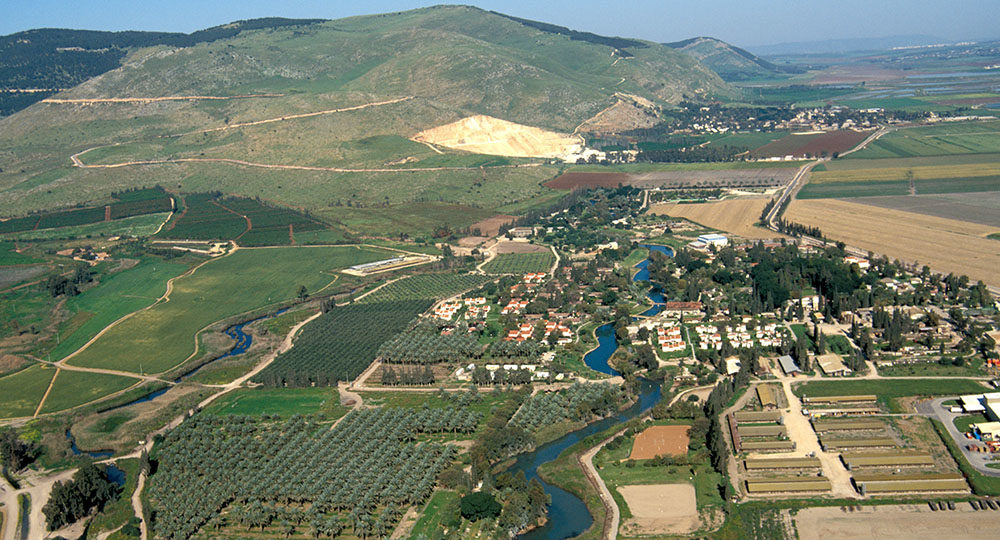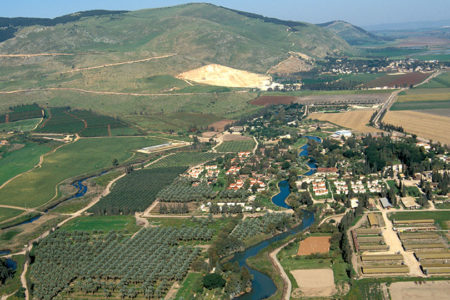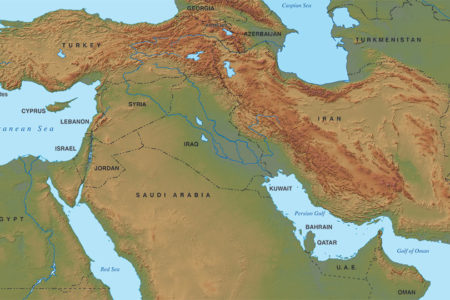Hallowed Be Your Name Ezekiel 36
In the Old Testament God’s covenant name is Yahweh (ʏʜᴡʜ or ʏʜᴠʜ, Ex. 3:14–15). Although often translated into English as “Gᴏᴅ” or “Lᴏʀᴅ” in capital letters, Yahweh differs from both of these terms. God is the biblical term for the one Supreme Being who is the Source, Sustainer, and Significance of all things (Rom. 11:36). Lord is the biblical term for God’s right of sovereignty over all things.
Yahweh implies that God is holy and is to be treated as such. One of the Ten Commandments is not to take the Lord’s name in vain. Consequently, many Jewish people today refer to God simply as Hashem—“the Name.” When Jesus taught His disciples to pray, He told them to address their heavenly Father by saying, “Hallowed [separate, venerated] be Your name” (Mt. 6:9).
The sacredness of God’s name and reputation is a major theme in the book of Ezekiel. The first 32 chapters speak primarily of God’s judgment on Israel and the surrounding nations. But shortly after hearing of Jerusalem’s destruction by Babylon in 586 B.C. (33:21), Ezekiel began to prophesy primarily of Israel’s blessed future (chapters 33–39), including that of a new Temple (chapters 40–48).
Some of Ezekiel’s prophecies have already come to pass. But the vast majority of them disclose what will happen immediately preceding and following the establishment of the Messianic Kingdom.
Chapter 36 reveals Israel’s glorious future and how, by blessing Israel, Yahweh will sanctify His holy name.
Prophecy to the Mountains
Ezekiel commanded the mountains of Israel to hear Yahweh. Since physical terrain is incapable of hearing anything, God was obviously addressing the people of Israel indirectly, using inanimate objects. In chapter 6, He spoke to the mountains to foretell judgment; but in chapter 36, He foretells blessing.
The mountains of Israel stand in contrast to Mount Seir of the Edomites (chapter 35). When the Babylonians carried Israel into captivity, the Edomites rejoiced, made Israel’s distress even worse, and claimed Israel’s land for themselves. Because they so mistreated the Jewish nation, God promised that all of Edom would become desolate:
As you rejoiced because the inheritance of the house of Israel was desolate, so I will do to you; you shall be desolate, O Mount Seir, as well as all of Edom—all of it!Then they shall know that I am the Lᴏʀᴅ (35:15).
Desolation was Israel’s condition for many years, too, and for good reason. Because of Israel’s sins, God brought calamity and made Israel the object of insults, jokes, and derision. The surrounding nations even appropriated Israel’s land with glee and contempt of soul.
But Israel’s enemies did not understand (nor do they still) that when they seized the Promised Land for themselves, they stole from God:
Surely I have spoken in My burning jealousy against the rest of the nations and against all Edom, who gave My land to themselves as a possession, with wholehearted joy and spiteful minds, in order to plunder its open country (36:5).
He calls it “My land.” He also refers to it many times as the “land of Israel,” indicating He is the rightful owner and Israel is the rightful tenant.
But Yahweh decided that Israel will not bear forever the “shame of the nations” (36:6). In hot, righteous anger, He strongly condemns Edom and the nations, solemnly vowing that they will bear their own share of insults and reproach.
But Israel will bear (same Hebrew word) fruit, yielding bountiful produce for the sake of the people of Israel—God’s people—who will return to it. Israel’s ultimate possession of the land is assured.
God then gives a beautiful reason as to why the land will become so fruitful: “For indeed I am for you, and I will turn to you” (v. 9). Although this affirmation addresses the mountains of Israel, it is intended for the Jewish people. Yahweh is on their side. And because of that fact, He will turn to them (face in their direction), meaning, He will bless them.
God not only will cause the Jewish people to return to the land, but He also will multiply their numbers once they arrive (v. 10). All of the house of Israel will be there, meaning, all 12 tribes; they will fill the cities and former waste places (cf. Ezek. 48). The restoration sequence is thus: first the mountains and lands, then the people, then the structures.
An abundance of life—in vegetation, people, and animals—will characterize Israel in those days. God promises to treat the land of Israel better than ever before and will do so by ensuring that Israel will always inhabit and possess the land. Never again will the land bear insults or disgrace. All Israel will then know that He is Yahweh.
But how will Israel remain in the land if its presence there depends on obedience to Yahweh (Lev. 20:22)? The answer is found in the rest of Ezekiel 36.
Prophecy to the House of Israel
First, God wanted it known that judgment fell on Israel because Israel had defiled His land. The Israelites shed innocent blood and worshiped idols. To Yahweh, this defilement was like a woman’s monthly impurity (v. 17). Therefore, God poured His wrath on Israel, scattering His people among the nations (v. 19).
But that is not all Israel did. While they were scattered among the Gentiles, the Israelites profaned Yahweh’s name. God’s holy name is not to be profaned, and He will act to protect it.
Then God commanded Ezekiel to prophesy, not to the mountains but to the people directly (a prophecy similar to that found in Ezekiel 20:33–44). Yahweh told the Israelites that what He was about to do was not for their sakes, but for His name’s sake:
Thus says the Lord Gᴏᴅ: “I do not do this for your sake, O house of Israel, but for My holy name’s sake,…And I will sanctify My great name, which has been profaned among the nations,…and the nations shall know that I am the Lᴏʀᴅ,” says the Lord Gᴏᴅ, “when I am hallowed in you before their eyes” (vv. 22–23).
God’s name carries a holy reputation, which He will defend, vindicate, and hallow by performing great feats for Israel in the sight of the Gentiles. Then the Gentiles will know that He is Yahweh. God will accomplish the following in this order:
[1] I will take you from among the nations, gather you out of all countries, and bring you into your own land. [2] Then I will sprinkle clean water on you, and you shall be clean; [3] I will cleanse you from all your filthiness and from all your idols. [4] I will give you a new heart and put a new spirit within you; [5] I will take the heart of stone out of your flesh and give you a heart of flesh. [6] I will put My Spirit within you and cause you to walk in My statutes, and you will keep My judgments and do them. Then you shall dwell in the land that I gave to your fathers; you shall be My people, and [7] I will be your God. [8] I will deliver you from all your uncleannesses. [9] I will call for the grain and multiply it, and bring no famine upon you. [10] And I will multiply the fruit of your trees and the increase of your fields, so that you need never again bear the reproach of famine among the nations…. [11] I will also enable you to dwell in the cities, and the ruins shall be rebuilt….I, the Lᴏʀᴅ, have spoken it, [12] and I will do it (Ezek. 36:24–31, 33, 36).
Notice that He calls the land of Israel “your [the Jewish people’s] own land” (v. 24). He will cleanse the nation spiritually, remove its heart of stone (its nature resistant to His will and truth) and give it a heart of flesh (a new, compliant nature). God will also give the Jewish people His indwelling Holy Spirit. All of these blessings will cause Israel to follow God’s Word faithfully.
Consequently, Israel will always be able to remain in the Promised Land. The nation will finally be confirmed in a spiritual state that will preserve it from falling away. The Jews will be Yahweh’s people, and He will be their God.
He will cause the land to burst forth with life and fruitfulness so that Israel is never again disgraced by famine. Israel’s people will remember how they spurned their God and will loathe themselves for it: “Then you will remember your evil ways and your deeds that were not good; and you will loathe yourselves in your own sight, for your iniquities and your abominations” (v. 31).
God emphasizes that He will do all this, not for Israel’s sake but for His own (v. 32).
A Promise Is a Promise
In closing, Yahweh recaps what He will do for the land and for His people in that future day. The land will be rejuvenated to such a degree that passersby will say it is like the Garden of Eden (vv. 34–35). The nations will acknowledge Yahweh’s handiwork, confirming that when Yahweh makes a promise, He fulfills it.
As for Israel’s population, it will increase greatly, in contrast to how it shrunk after the Israelites forsook the Lord (Dt. 28:62). Israel’s cities shall be filled with “flocks” of men; and Yahweh promises, “Then they shall know that I am the Lᴏʀᴅ” (Ezek. 36:38).
There are 61 as yet unfulfilled promises in this chapter. Most of them deal with Israel. None pertain to the church. These promises only make sense if understood literally, not figuratively.
Ezekiel 36 teaches that nations should be careful how they treat Israel. Until these promises of restoration are fulfilled, Gentile powers should not intensify Israel’s distress. They should not insult Israel or claim Israel’s land for themselves. God calls Israel His people, even though they are in disobedience and exile.
And just as He acts on our behalf, even though we do not deserve it, so will He act on Israel’s behalf, for His glory.
Despite what some claim, God is indeed knowable. In no fewer than 73 verses in the book of Ezekiel (four of them in chapter 36), God asserts that the intention behind His actions is to bring human beings—Jewish and Gentile—to the knowledge that Yahweh is God. That is His name, and it is not to be profaned.








This is beautiful